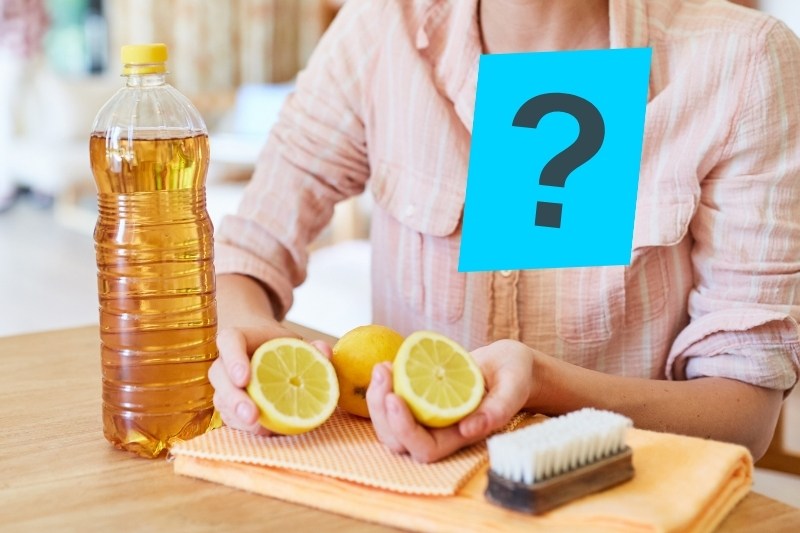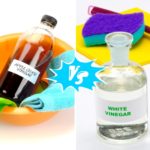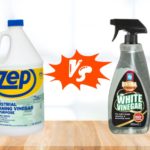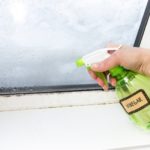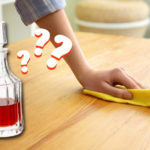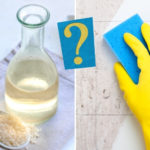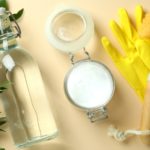If you want to avoid using harsh cleaning chemicals, going for a homemade non-toxic cleaner is an effective substitute. Not only are they as potent as manufactured products, but are also cheaper and don’t have the same downsides.
When looking for an effective and economical solution to cleaning homes, vinegar and lemon are the instinctive options that come to our minds. But can they be mixed for cleaning? What advantages do they provide over conventional products? Read on to find out.
Can You Mix Vinegar and Lemon Juice for Cleaning?
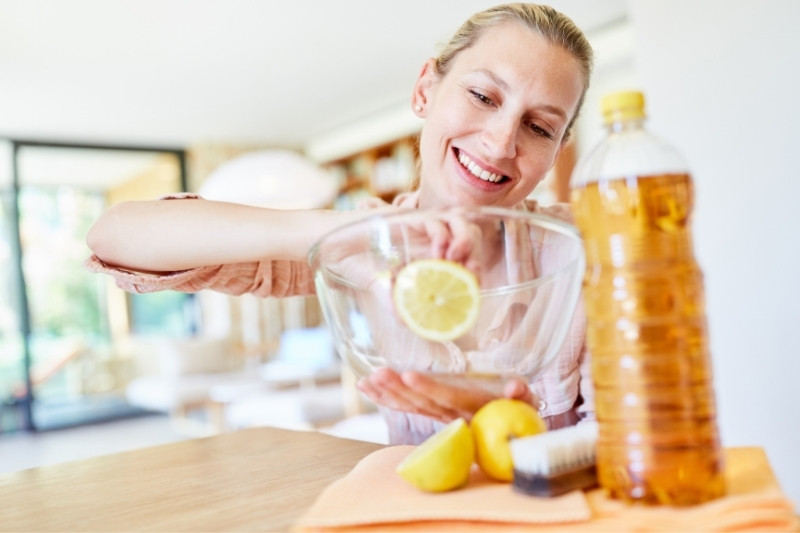
Yes! You can mix vinegar and lemon juice for cleaning without any problems. In fact, this mixture provides a nice fragrance, is cost-effective, and deep-cleans your home in all its nooks and corners.
Add 1/2 a cup of vinegar with 1 teaspoon of lemon juice, and mix them with 1/2 cup of water for an all-purpose cleaning solution. You can then scale this formula up if you needed any more.
What You Can Clean with Vinegar and Lemon Juice
Using a lemon-vinegar spray is especially beneficial in kitchens. It will help you clean countertops, windows, grease, hard-water spots and, after all, who doesn’t love the refreshing smell of lemons?
The lemon is also able to inhibit the unpleasant scent of vinegar, making it easier for your nose while cleaning.
Coffee maker
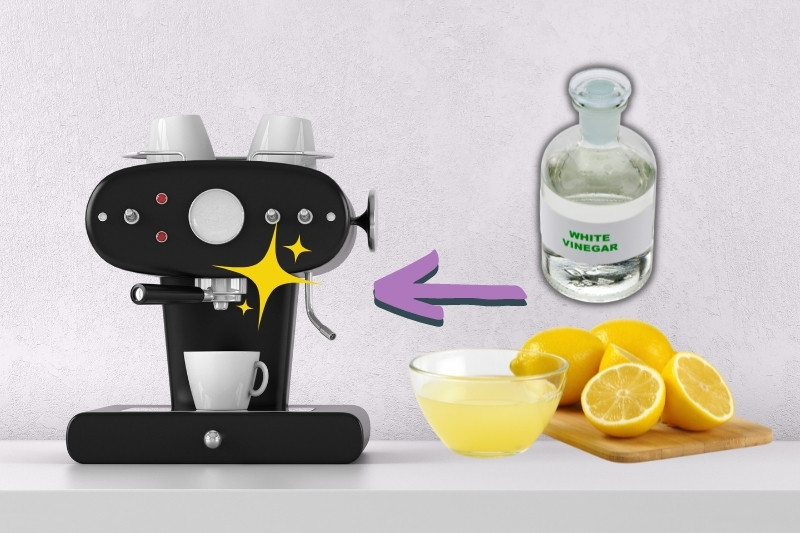
You can even wash the interior of your coffee maker and get it ready for your next drink. Pour equal parts of the lemon-vinegar solution and water, and run the machine.
Halfway through the process, turn the device off and let it sit for an hour. Resuming the cycle after an hour will help in the removal of grime that usually builds inside these machines and extend their lifecycle.
Microwave
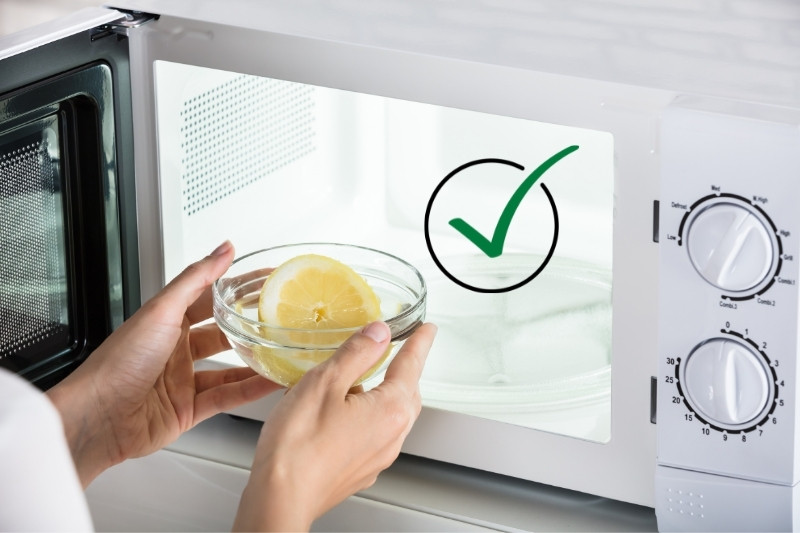
The same solution can also be applied to your microwave. Put one cup of the solution and water in a bowl, and microwave it on high for about 2 minutes. Wipe the interior with a damp cloth later, and you will be able to notice a cleaner and sparkling difference.
There are a few different ways to clean a microwave with lemon, and you don’t necessarily need to use vinegar as well.
Bathroom and shower
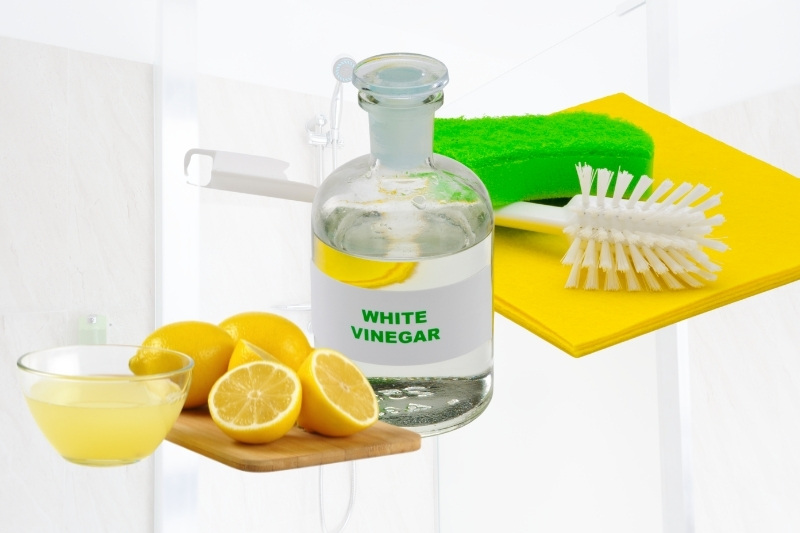
Cleaning your bathroom with the lemon-vinegar solution is also a great idea. It will effortlessly remove mineral deposits from sinks, toilets, bathtubs, and other stainless-steel appliances.
One easy method to get your showerhead sparkling clean is to pour the solution into a plastic bag and dip the showerhead in the liquid overnight. In the morning, you can rinse it thoroughly and go about using it as usual.
It also acts as an excellent solution for mildew growth along the walls surrounding the shower.
What Not to Clean with Vinegar and Lemon Juice
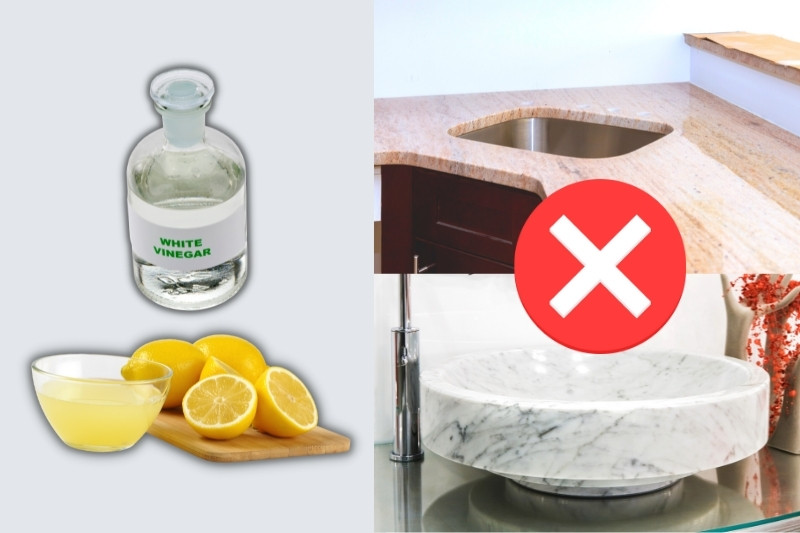
Overall, the solution of vinegar and lemon juice make up the perfect cleaning liquid with its antibacterial and antiseptic characteristics. However, you should avoid using this liquid solution on granite and marble materials as it is very acidic and will leave marks on the surface.
That said, although it has an acidic and corrosive nature and is used to clean surfaces, it is not harmful to your kids or pets.
Making a Spray Solution from Leftover Lemons
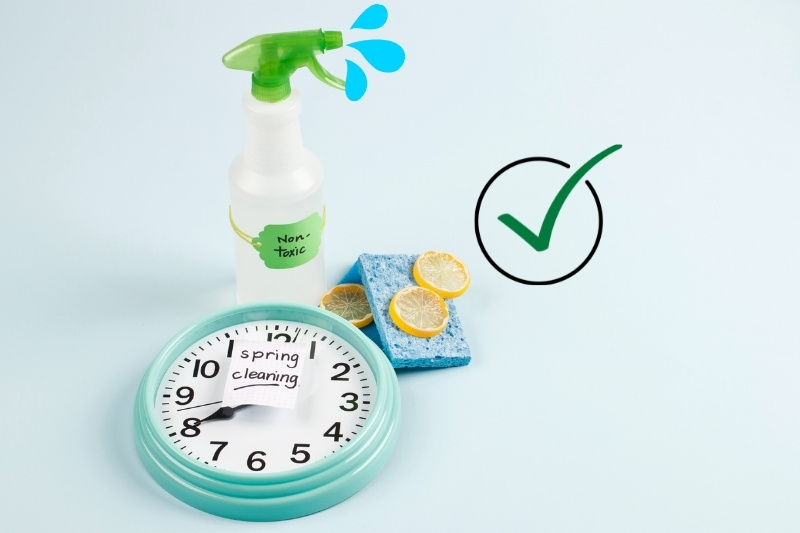
Now that you know if a vinegar and lemon juice solution is feasible for cleaning and the places where it can be used, here is a small tip to make the best use of the leftover lemons.
You should have the rinds of lemons leftover after the extraction of the juices. Carefully remove the yellow side of the peels as too much of the white piths can make the final fluid sticky. If you have a good amount of lemon peels (anywhere around 5-8 lemons), place them in a jar and pour white vinegar in with it.
Seal the jar and set it aside for 2-3 weeks. Incorporating a handful of herbs and other natural ingredients also increases its disinfecting power. You can give the container a shake every now and then to accelerate the steeping.
When the time comes, strain the lemon rinds from the vinegar and discard them. Remember to take out any chunks or particles to prevent clogging of the spray bottle. If you like, you can dilute the solution by adding water to a 50/50 mixture.
Pour the solution into a spray bottle and get down to work! It’s perfect for those who find cleaning with a spray bottle easier and still want to avoid harsh chemicals.

I’m a mother of three who loves going on fun adventures with my family. With three little ones, I’ve learned the hard way how to keep a busy home clean! I want to share my tips and tricks to make your life as easy as possible.
